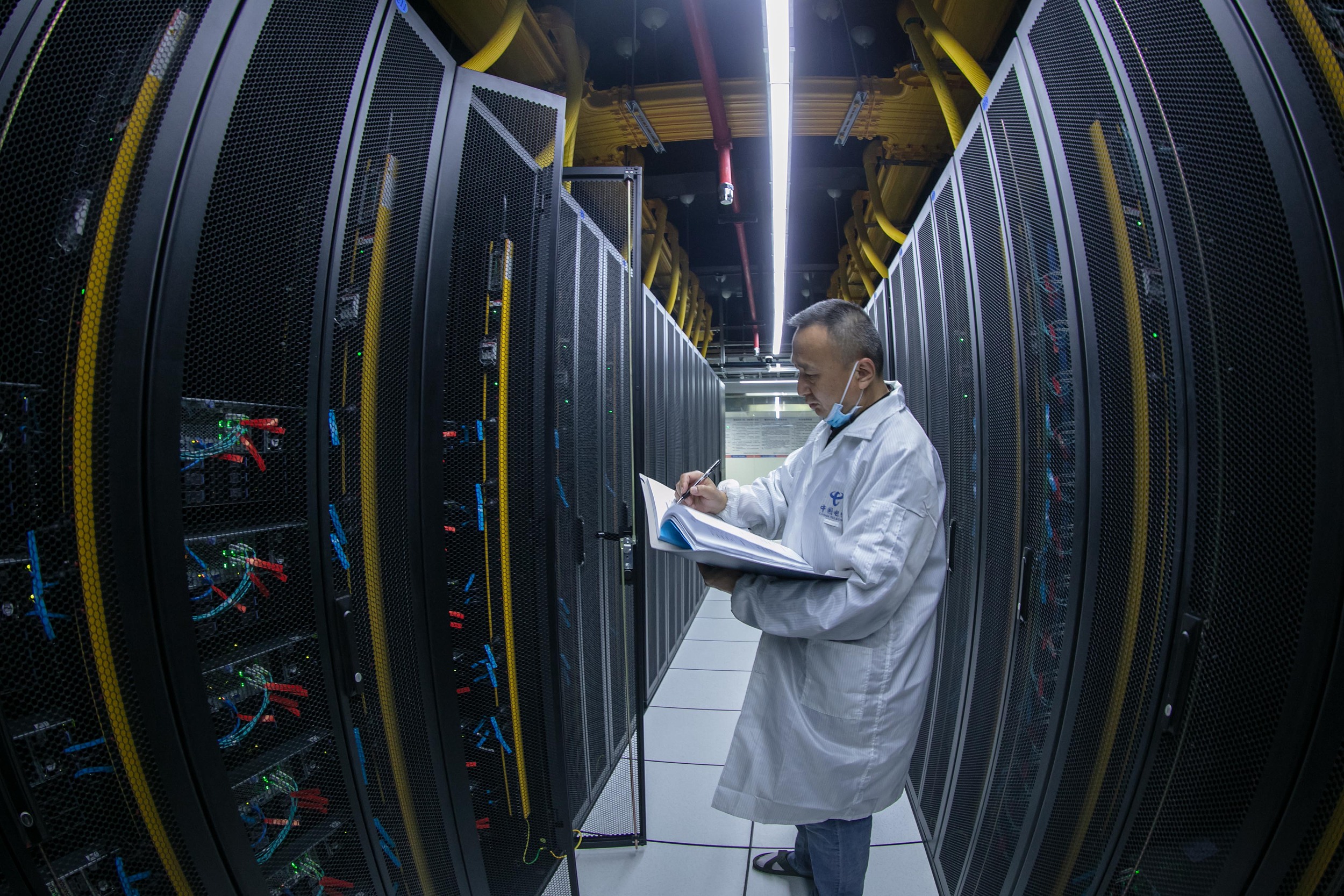By?Zhong?Jianli

An engineer checks equipment at a Cloud Computing Big Data Center in Jiujiang city, Jiangxi province. (PHOTO: VCG)
To meet China's strategic needs, the country will provide resources for original and pioneering scientific and technological research to achieve breakthroughs in some core technologies in key fields. That's according to the report presented to the 20th CPC National Congress.
Chinese academicians are upbeat about the resources and what it means to their research, and shared their thoughts on the topics below.
Develop new-generation IT
The research team of the Imaging and Intelligent Technology Laboratory of Tsinghua University has long been committed to developing new-generation information technology.
"In October, our team published the results of the meta-imaging sensor in Nature, which opened up a new way to solve the problem of optical aberration. The sensor can also be used in astronomical observation, biological imaging, medical diagnosis, mobile terminals, industrial detection, and other fields," said Dai Qionghai, an academician of the Chinese Academy of Engineering (CAE) and dean of the School of Information Science and Technology at Tsinghua University.
Dai explained that his team is always keen to carry out disruptive research to serve the major needs of the country. They are cognizant of the fact that major original innovations often sprout from basic research in interdisciplinary fields and that universities have natural advantages in this regard.
Therefore, they will maintain continuous investment in basic research, dare to question existing theories, and explore new research directions, to make their contribution to building China into a major sci-tech center and innovation hub in the world, he said.
Build new-type energy systems
"I have noticed that the report to the 20th CPC National Congress has repeatedly mentioned issues related to 'energy' and proposed to actively yet prudently promote carbon peaking and carbon neutrality," said Wang Chengshan, also a CAE academician and director of the National Energy Storage Technology Industry-University Integrated Innovation Platform of Tianjin University.
Wang added that the development of renewable energy and the building of new-type power systems are key measures to achieve carbon peaking and neutrality goals.
"With the rapid increase of the proportion of renewable energy in the power system, the transmission or distribution system, operation mode, and market mechanism will undergo profound changes. As power system researchers, we need to make efforts to provide technical support for the development of new power systems," said Wang.
He also mentioned that universities undertake the important mission of cultivating talent, so it is necessary to organize various disciplines to work together to do research, and train high-level professionals to better serve the country's needs.
Boost agriculture innovation
In the past decade, the Hunan Academy of Agricultural Sciences (HAAS) has made a series of breakthroughs in technological innovation in the agriculture sector.
The third-generation hybrid rice developed by HAAS has achieved the world-record double-cropping rice yield of 1603.9 kg per mu (about 667 square meters) and was selected as one of the world's top 10 engineering achievements in 2021.
HAAS will continue to improve the talent cultivation mechanism, strive to train about 200 high-level agricultural experts within five years, and make sure the large-scale demonstration fields of saline-resistant rice will keep their yield at over 300 kg per mu, according to Bai Lianyang, a CAE academician and secretary of the CPC Committee of HAAS.
Apart from building well-functioning major sci-tech innovation platforms, HAAS will promote the construction of a comprehensive experimental base at Dongting Lake Ecological Zone, and support the development of local industries and rural revitalization, said Bai.
The trio will conduct a series of experiments in fields such as life science, fluid physics, combustion science and materials science. Notably, this is the first time that fruit flies have been taken on a Chinese space mission as experimental subjects. What made scientists choose fruit flies? What experiment will they undergo?
